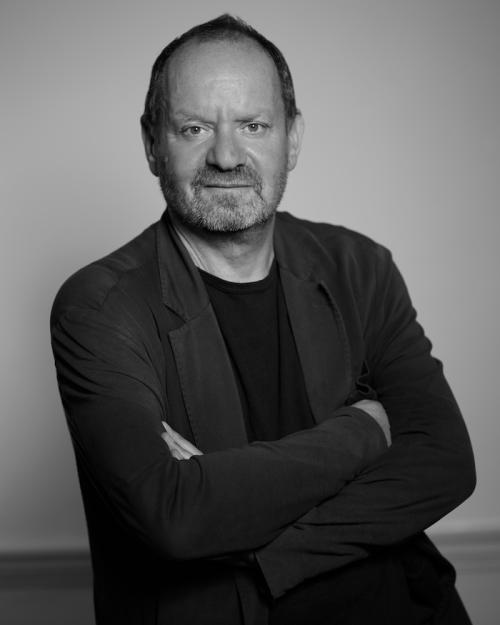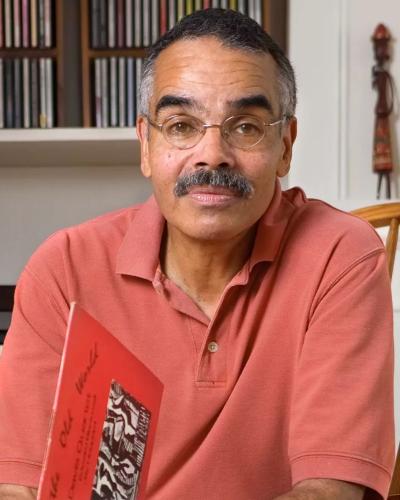Arriving in Ithaca from Harlem over forty years ago marked the start of an extraordinary career for Kenneth McClane, poet, essayist and beloved teacher. After graduating from Cornell as a College Scholar, McClane went on to obtain the prestigious role of W. E. B. DuBois Professor of Literature. Recently retired, he maintains a deep affection for his students and has returned to the classroom more than once to continue enriching students with his prolific knowledge of poetry and writing.
Reflecting on his time at Cornell, McClane says that it was politics that first drew him to the University. McClane arrived in the Fall of 1969, a year that saw members of the Afro-American Society occupying Willard Straight Hall to protest Cornell’s slow progress in establishing a Black Studies program. “This was a time when there was very little if anything to sustain Black students,” McClane remembers.
A photograph of protestors won a Pulitzer and quickly "became one of the most famous photographs in 100 years." McClane was inspired. "I came to Cornell in the Fall after this happened. I felt that Cornell was dealing with issues of politics and race honestly."
"Be vulnerable, and do not be afraid of it. Our job is to say what other people are afraid to say."
Now," he says, speaking of the creative writing program, "we are one of the most diverse English departments in the country in terms of faculty." He states that "it's a wonderful moment when you have enough people to feel that something that needs to be said can be said, and you are not the lone voice in the room."
Author of seven poetry collections, including Out Beyond the Bay, Moons and Low Times, At Winter's End and A Tree Beyond Telling, McClane is working on a new collection of essays. His 2010 volume, Color: Essays on Race, Family, and History, was awarded the Gold Medal for the best book of essays published in 2009 by Foreword Reviews.
Alongside his accolades as a writer, McClane’s passion for teaching runs deep. Winner of a Weiss Presidential Award for excellence in teaching, McClane was also part of the team that established the Cornell Prison Education program.
"I don’t want clones" McClane says when asked how he approaches teaching in various settings. "Clones are dangerous." The best thing, rather, is to "figure out what a person’s project is" and how "best to help this person divine what he or she wants to do." When we met, McClane had been teaching James Baldwin’s Giovanni’s Room to students at the Auburn Correctional Facility. He appreciates that these students say "exactly what they feel. In one of the world’s darkest places there is, amazingly, much light."
"As writers we are condemned to writing," he says, and "there is something both wonderful and terrifying about being somebody who is always a watcher, an onlooker, who is both in the world and removed from it."
Reflecting on highlights from his teaching career McClane repeatedly returns to moments where poetry is able to forge community. He says "I have such great affection for my students. It is courageous to come into a classroom and let people look at your work."
One moment in particular stands out. McClane was teaching the personal essay to freshmen when a student shared a deeply moving piece about personal loss in the Vietnam war. The student had witnessed members of her family killed by American warplanes. McClane recalls thinking to himself, "What do we do now? How do we honor this incredibly audacious paper and take its author seriously?" Before this effort, the student had written good, tidy essays, but ones that were impersonal. Remembering this interaction, McClane is nearly brought to tears. "Every student in that class spontaneously stood up and hugged her. That was it. It was the only thing that could happen." He adds, "it’s those moments that make teaching sacred."
His pedagogy is clear: as a teacher, it’s not about you. His approach is built on kindness and understanding. "Classes are always about forging levels of trust," he confirms. "What we really need to do every day is take an empathy pill."
When asked to expand on his approach to teaching creative writing, McClane says that a large part consists of "making people understand that writing is a public act, that you owe something to an audience and you better know who that audience is, otherwise you’re going to be lonely."
"What we do as writers is the most human of things," he tells me. "Be vulnerable, and do not be afraid of it. Our job is to say what other people are afraid to say."
Asked what he is currently reading, McClane says that right now he’s being drawn back to "things that nourished me at one point, because at that point I needed them but didn’t fully understand them." James Baldwin, Gwendolyn Brooks and Audre Lorde - "powerful then and powerful now."






